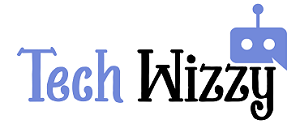The Internet of Things (IoT) has emerged as a game-changer in various industries, offering transformative solutions for businesses. Beyond its technological advancements, IoT solutions provide substantial economic benefits by optimizing resources and generating cost savings. In this blog, we will explore how IoT solutions, powered by the IoT platform, drive resource optimization and cost savings for businesses. From energy management to supply chain optimization, we will delve into the key economic advantages that organizations can achieve through the adoption of IoT solutions.
Resource Optimization with IoT Solutions
Energy Management
IoT solutions enable businesses to monitor and manage energy consumption in real-time. Through smart meters, sensors, and analytics, organizations can identify energy inefficiencies, track usage patterns, and implement energy-saving measures. This results in reduced energy costs, lower environmental impact, and improved sustainability.
Asset Tracking and Maintenance
IoT solutions provide real-time visibility into assets and equipment. By leveraging sensors and connectivity, organizations can monitor the condition and performance of assets, predict maintenance needs, and schedule proactive repairs. This predictive maintenance approach minimizes downtime, extends asset lifespan, and optimizes maintenance costs.
Inventory Management
IoT-enabled inventory management solutions enhance supply chain efficiency. Real-time data on stock levels, demand patterns, and shelf life enable organizations to streamline inventory processes, minimize stockouts, and reduce excess inventory. This leads to cost savings through improved inventory turnover, reduced carrying costs, and increased customer satisfaction.
Waste Management
IoT solutions facilitate smart waste management by monitoring fill levels of trash bins and optimizing collection routes. Real-time data on fill levels enables organizations to optimize waste collection schedules, minimize unnecessary pickups, and reduce fuel consumption. This results in cost savings and operational efficiencies in waste management processes.
Cost Saving with IoT Solutions
Operational Efficiency
IoT solutions enhance operational efficiency by automating processes, reducing manual intervention, and streamlining workflows. Organizations can optimize operations, minimize errors, and reduce labor costs through IoT-driven automation, from manufacturing operations to logistics and supply chain management.
Remote Monitoring and Maintenance
With IoT solutions, organizations can remotely monitor and manage devices and systems. Remote monitoring reduces the need for physical inspections, eliminates travel costs, and enables swift detection and resolution of issues. It also allows for remote software updates, minimizing the need for costly on-site maintenance visits.
Improved Logistics and Fleet Management
IoT logistics and fleet management solutions offer cost-saving benefits through route optimization, fuel efficiency monitoring, and real-time tracking. Organizations can optimize delivery routes, reduce fuel consumption, minimize vehicle idle time, and enhance overall fleet efficiency by leveraging IoT-enabled sensors and GPS technology.
Customer Insights and Personalization
IoT solutions enable organizations to collect and analyze customer data in real-time. Businesses can deliver personalized experiences, targeted marketing campaigns, and tailored product offerings by gaining insights into customer behavior, preferences, and usage patterns. This leads to improved customer satisfaction, increased loyalty, and higher revenue generation.
Conclusion
The economic benefits of IoT solutions are substantial, providing organizations with resource optimization and cost-saving opportunities. Through energy management, asset tracking, inventory optimization, waste management, and more, businesses can achieve efficiency gains, reduce operational costs, and improve their bottom line. By embracing IoT solutions and leveraging the capabilities of IoT platforms, organizations can unlock economic advantages, stay competitive, and drive sustainable growth in today’s interconnected world.
FAQs
Q1: Are IoT solutions expensive to implement?
A1: The cost of implementing IoT solutions can vary depending on factors such as the scale of deployment, complexity, and specific requirements. However, the long-term benefits, including resource optimization and cost savings, often outweigh the initial investment. Organizations can choose scalable IoT platforms and gradually expand their IoT initiatives as needed.
Q2: Can small businesses benefit from IoT solutions?
A2: Yes, small businesses can benefit from IoT solutions. IoT platforms offer scalable solutions tailored to meet small organizations’ needs and budget constraints. By leveraging IoT solutions, small businesses can optimize resources, streamline operations, and achieve cost savings in various aspects of their operations.
Q3: Is data security a concern in IoT solutions?
A3: Data security is a critical consideration in IoT solutions. Implementing robust security measures, including data encryption, access controls, and secure communication protocols, is essential to protect IoT devices, networks, and data. Choosing reputable IoT platforms and following best practices for data security can help mitigate risks.
Q4: Can IoT solutions help reduce maintenance costs?
A4: IoT solutions can help reduce maintenance costs through predictive maintenance. By monitoring equipment and assets in real-time, organizations can detect potential issues early, schedule maintenance proactively, and minimize costly unplanned downtime.
Q5: Can IoT solutions be integrated with existing business systems?
A5: IoT solutions can be integrated with existing business systems through APIs (Application Programming Interfaces) and integration frameworks. IoT platforms often provide integration capabilities to enable seamless connectivity and data exchange between IoT devices and existing business applications.








